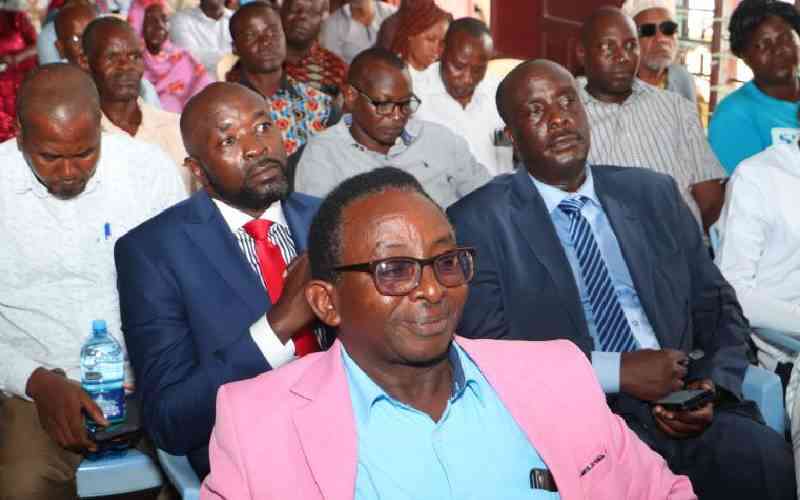
Pastor Ezekiel Odero's lawyers Cliff Ombeta (in red tie) and Dunstan Omari (in blue striped tie) follow proceedings at the first public participation session organized by the presidential task force on the review of the legal and regulatory framework governing religious organizations in Kenya on June 13, 2023, at Juwaba Social Hall in Kilifi County. [Robert Menza, Standard]
The presidential task force on the review of the legal and regulatory framework governing religious organizations kicked off to a stormy start when Pastor Ezekiel Odero's lawyers walked out of a session the team had organised in Kilifi County on Thursday.